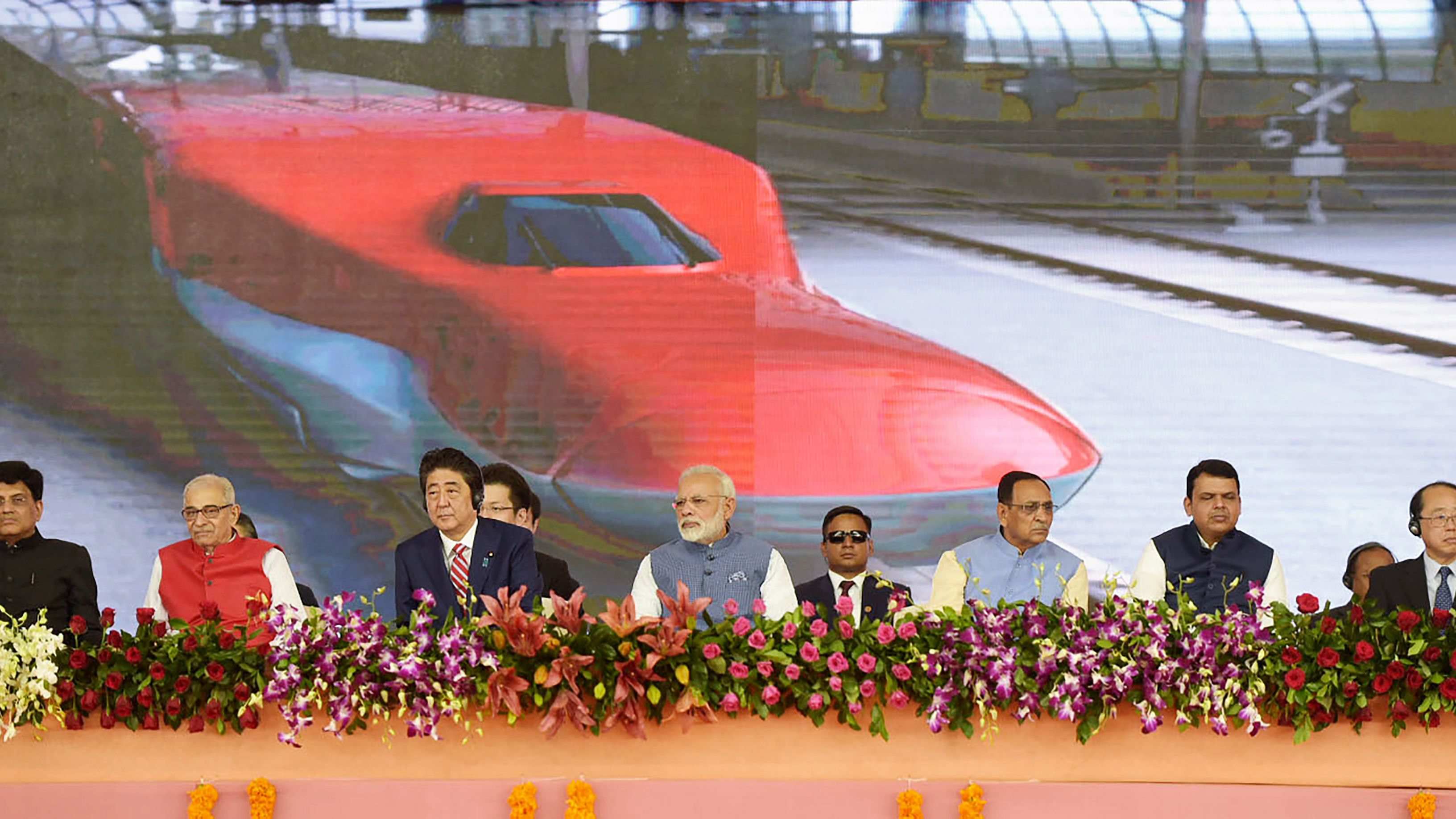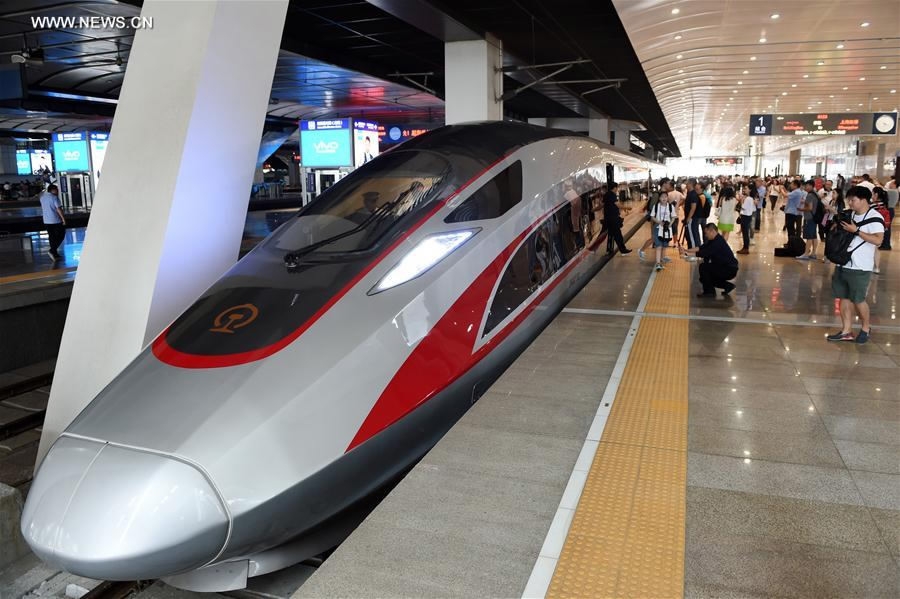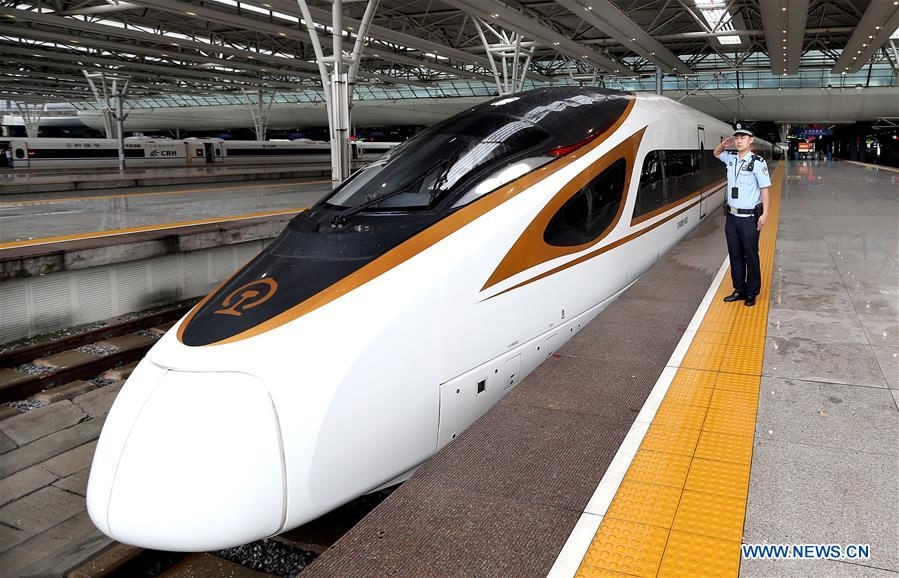
Business
15:46, 06-Oct-2017
Debate rages over feasibility of bullet trains in India
Alok Gupta

A debate is raging in India over a recent bullet train deal with Japan. While a group of experts feel that low-cost airlines threaten the feasibility of High Speed Railway (HSR), another set of experts claim that Thailand's bullet train deal with China appears to be more economical.
The bullet train between Mumbai and Ahmedabad under the HSR project will hurtle at a speed of 350 km per hour to cover a distance of 509 km in two hours. Currently, a train journey between the two cities takes over seven hours.
The total cost of the project is estimated to be around 17 billion US dollars. Japan is providing 80 percent of the amount in a loan at 0.1 percent interest rate over a 50-year repayment cycle.
Airfare vs bullet train fare
Indian Railways is already facing stiff competition with budget airline travelers. Last year, air traffic grew by nearly 23 percent, but the number of passengers traveling by air-conditioned coaches registered a growth of only five percent.
TR Raghunandan, a former joint secretary of the government of India, feels that bullet trains between Ahmedabad and Mumbai will be nearly three times more expensive than flights. Such a fare difference would make the HSR project unviable.
At present airfare between the two cities hovers around 3,000 to 3,500 rupees (about 45 to 53 US dollars). Raghunandan points out that when Japan built their Shinkansen bullet trains in 1964, there was no competition despite the high cost of construction.

China's next generation bullet train "Fuxing" debuted on the Beijing-Shanghai line on June 26, 2017. The new bullet train, also known as electric multiple units (EMU), boast top speeds of 400 kilometers an hour and a consistent speed of 350 kilometers an hour. /Xinhua/Ju Huanzong/
China's next generation bullet train "Fuxing" debuted on the Beijing-Shanghai line on June 26, 2017. The new bullet train, also known as electric multiple units (EMU), boast top speeds of 400 kilometers an hour and a consistent speed of 350 kilometers an hour. /Xinhua/Ju Huanzong/
"The network reached the 100 million passenger mark in less than three years and one billion passengers in 1976," Raghunandan told CGTN. He added that today, Shinkansen trains depart at short intervals of a few minutes and transports a large volume of passengers. Thus for Japan, the Shinkansen works out economically and logistically.
According to a report by Indian Institute of Management Ahmedabad (IIM-A), Dedicated HSR Networks in India: Issues in Development,’ mentions that Indian Railways will have to fix the ticket price at 1,500 rupees or about 23 US dollars and have to ferry between 88,000 and 110,000 passengers to make the project feasible.
It would mean that the HSR between the two cities will have to make nearly 50 trips daily.
Bidding would have been a better option
India refused to invite a competitive bid for its bullet train venture, and it has led to massive speculation among political parties and experts.
Indonesia was initially planning to invite Japan to bid for their Jakarta-Bandungto HSR, but decided to opt for a competitive bidding, which China eventually won.

Passengers prepare to get on the G10 Fuxing bullet train running on the Beijing-Shanghai high-speed railway at Shanghai Hongqiao Railway Station in Shanghai, east China, Sept. 21, 2017. /Xinhua/Fan Jun
Passengers prepare to get on the G10 Fuxing bullet train running on the Beijing-Shanghai high-speed railway at Shanghai Hongqiao Railway Station in Shanghai, east China, Sept. 21, 2017. /Xinhua/Fan Jun
Recently, when China received a 5.5 billion deal to connect Bangkok with southern China, politicians in India started comparing China’s Thailand bullet train venture with that of Japan’s India bullet train investment.
Prashant Bhushan, a lawyer and a former leader of Aam Aadmi Party in a tweet said, "Thailand approves 3,000 KM Chinese bullet train from Bangkok to China for $5.5B. India approves 500KM train for $17B!"
The politician probably misunderstood Thailand government’s announcement that the 256-km first phase of the high-speed railway project will cost approximately 5.5 billion US dollars.
Bhushan realized his mistake and immediately corrected himself by tweeting
"On further research, it seems that $5.5B may be for the 1st phase of this train track of only 256KM length. My apologies."
Raghunandan told CGTN that it’s difficult to ascertain whether China has the edge over Japan regarding the cost-effectiveness of the bullet train. "However, I have started doing the mathematics to ascertain who has the edge over the bullet train," he said.

SITEMAP
Copyright © 2018 CGTN. Beijing ICP prepared NO.16065310-3
Copyright © 2018 CGTN. Beijing ICP prepared NO.16065310-3